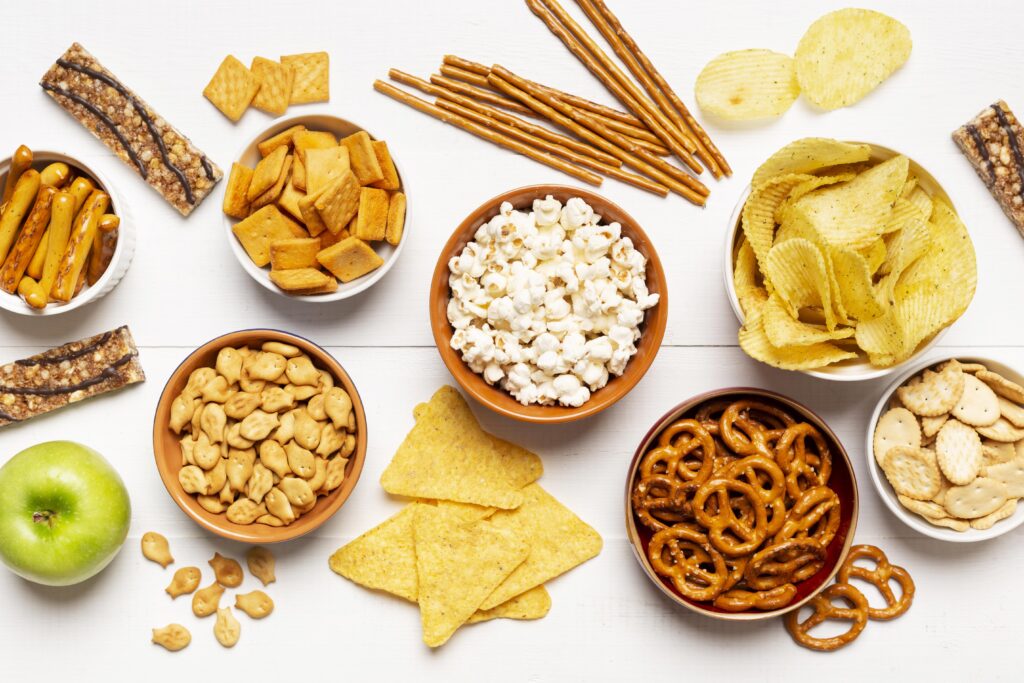
If there’s one thing we can agree on, it’s that we love snacks. Most Americans snack more than once a day, with snacks making up about a fifth of our daily intake. As your dietitian, I am a fan of this trend. That said, we should strive for planned, intentional snacks that bridge energy and control hunger between meals. And we should avoid snacking that can’t be recalled at the end of the day. If your snack habits fall into the latter category, let’s look at what may be driving them.
Fatigue
There’s a strong connection between our sleep habits and our eating patterns. For example, when we’re tired, we often use food to wake up. And it’s true that some snacks do the job and boost us between meals. But if you’re snacking throughout the day, you may need a Guiding Stars earning caffeinated beverage or an energizing smoothie. Snacking at night? Do your best to eliminate that as much as possible—and try going to bed instead!
Hunger
It’s probably not surprising that we snack more when we’re hungry. However, what you may not realize is that your meals may actually increase snacking. A satisfying meal offers adequate lean protein and/or healthy fats. But what if it’s primarily composed of carbohydrates? (Oatmeal with fruit, cereal with milk, and pasta with tomato sauce are good examples.) In that case, you may feel full in the moment, but won’t be satisfied for long. The result? More snacking. Aim for more balanced meals and you just may shift your snack habit too.
Thirst
It’s very common to snack when we should be sipping instead. Proper hydration is essential for your overall health, and it also improves digestion. If you have persistent hunger between meals, drink a glass of water and then assess how hungry you are. And be sure to hydrate throughout the day with beverages that you enjoy. Herbal tea, flavored water, and other refreshing options are all good choices.
Stress
When we’re stressed or over-scheduled, our eating patterns reflect our mood. Snacking often becomes erratic and difficult to measure or recall at the end of the day. (In other words, the opposite of planned and intentional.) Food does a lot for us, that’s for sure, but it won’t ever manage our stress. And this can be tricky, because sometimes stress feels like hunger. But it’s not physical hunger—it’s emotional “hunger,” which begins with our thoughts. We should only turn to food when we’re actually physically hungry (a sensation that begins in our stomach). If you find yourself stressed and snacking, look for other ways to lower your stress.
Poor planning
The ideal snacks are deliberate and balanced. They satisfy hunger between meals and even help prevent excess snacking. Think of snacks as your bridge between meals, designed to fuel and sustain you. They are also an opportunity to consume foods that aren’t in your meals, such as fruits and vegetables. Try to prep your snacks the same way you plan meals. You’ll have balanced nutrition on hand to sustain you throughout the day, and you won’t snack more…just better.